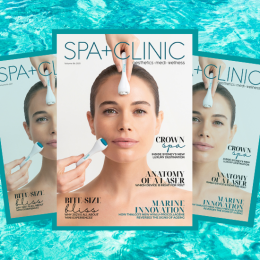Are you thinking about putting someone on for an unpaid trial? Has someone come to you looking simply for some ‘work experience’ in the field?
 Before doing either, you need to do your homework about what is legal, according to Kerri-Ann Allen, Senior Industrial Relations Advisor of Hair and Beauty Australia (HABA).
Before doing either, you need to do your homework about what is legal, according to Kerri-Ann Allen, Senior Industrial Relations Advisor of Hair and Beauty Australia (HABA).
‘Fair Work reports a growing number of businesses industry wide are using trial periods’ or the promise of employment to attract workers into unpaid roles which should be filled by paid staff,’ she says. ‘Failure to meet obligations under the Fair Work Act 2009 may leave you liable for penalties.’
When is unpaid work illegal?
In determining if an unpaid work scheme is legal, the important question Fair Work considers is if an employment relationship exists between the two parties and whether or not this would lead to an individual being required to be paid a minimum wage or any further entitlements under the Fair Work Act.
While it is common for salon and clinic owners and management to be approached by individuals requesting unpaid work experience to enhance their skills, HABA advises that any circumstances such as this should be approached with caution.
Unpaid trials
There is no such thing as an unpaid trial. A trial period is a length of time an individual will work in your salon or clinic. Generally that is a short period such as a week to assess if this person fits into your specific business’s environment. Furthermore, if this potential employee will like working in your business.
If a potential employee is undergoing a trial it is generally considered that they are performing a productive activity within a business and hence is entitled to be paid for the time. This potential employee should be paid for their work at no less than the minimum required rate of pay for their classification level. Note that apprentices cannot be paid as an apprentice until there is an intention to indenture them and sign them. Therefore apprentices must be paid as a salon assistant.
Unpaid Training
Fair Work views all training that an employee is required to undertake be paid for. This includes in-salon/clinic training and external training or educational courses. Fair work advises that the day or hours spent undertaking the training must be paid for not just the course itself.
Training which is viewed as unrelated to employment or which is not instructed or implied by the business to undertake may not require payment. This generally relates to courses which are not compulsory or promoted within your business. In such circumstances you may agree with your employees for a day off or to be paid from annual leave.
Opening and Closing Salons
Employees need to be paid for time spent opening and closing salons. If this is outside their ordinary hours this may be required to be paid at an overtime rate. For example, an employee required to come into work 15 minutes early needs to be paid for this time. If they are full time and this is above 38 hours, you will need to pay the employee overtime rates or use a time-in-lieu system.
When is unpaid work legal?
Skill Tests
A skills test is generally unpaid; however it is important to understand the difference between a skill test and a trial period. A skill test is used within the recruitment process to allow a potential employee to demonstrate their abilities in relation to the duties that would be required for the position. A skill test is generally for a short period of time which is no more than the time it would take to perform a service. In most circumstances a skill test will be done on volunteers or models within the business premises so an employer can assess a potential employee’s abilities.
Vocational Placement
A vocational placement is a formal work experience arrangement conducted as a mandatory part of an educational or training course. In order for a placement to be considered a legal unpaid work scheme it is important to ensure that the placement is:
‘ Taken as a requirement of an Australian-based education or training course which you can confirm by contacting the Registered Training Organisation (RTO).
‘ Is authorised under a law or an administrative arrangement of the Commonwealth, State or Territory.
‘ Is undertaken with an employer for which the person is not entitled to be paid any form of remuneration.
It is important that all the above criteria are meet for a person to qualify for an unpaid placement. If one of the above criteria is not meet the person may be entitled to the national minimum wage and entitlements under the Fair Work Act.
Work Experience
Work experience is an arrangement that takes place between your business and an education institution such as a school to allow a student to observe and undertake job experience without pay.
The individual is still classed as a student and not as an employee. The arrangement is designed to give students experience in the workplace to enhance employability but also to allow students to determine career interest for the future. In order for work experience to be considered a legal unpaid working condition the following aspects should be considered:
‘ The degree of control of the student’s activities, such as start and finish times within the salon or clinic.
‘ Whether the student performs work to the company’s advantage.
‘ The length of time of the work experience; generally speaking the longer the period of placement the more likely the person may in fact be an employee.
‘ The expectations or requirement of productivity in the workplace.
‘ If the placement was entered into through a university or a vocational training program.
For work experience generally a letter from a student’s course supervisor or high school principal providing details of the arrangement can assist in clarification of this unpaid work scheme.
* Hair and Beauty Australia is the peak national not-for-profit industry association servicing members from hair and beauty salons, day spas and training colleges. HABA can offer individual tailored advice to ensure your salon is compliant and meeting its legal obligations.
www.hairandbeautyaustralia.com.au




